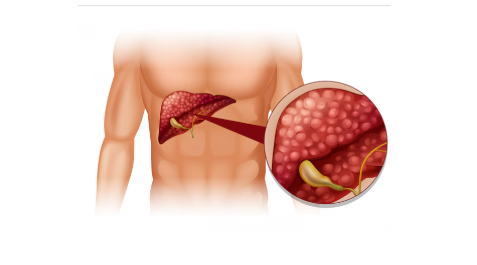By: Geraldus Sigap

Pancreatic cancer occurs when abnormal cells in the pancreas grow uncontrollably, forming a tumor. The most common type, pancreatic ductal adenocarcinoma, begins in the ducts that carry digestive enzymes. Less common forms include tumors in the hormone-producing cells. Because the pancreas is located deep within the abdomen, any abnormalities are often difficult to detect without advanced diagnostic tools.
- Unexplained Weight Loss: Sudden and significant weight loss without any changes in diet or physical activity is a common early sign. It may occur because the pancreas is not producing enough enzymes to properly digest food, leading to poor nutrient absorption.
- Jaundice: A yellowing of the skin and eyes, known as jaundice, can occur when a tumor blocks the bile duct. This blockage causes bile to build up in the liver, resulting in high levels of bilirubin in the blood.
- Abdominal or Back Pain: Persistent pain in the upper abdomen or middle back can be a symptom of pancreatic cancer. This pain may result from a tumor pressing on nearby nerves or organs.
- Changes in Stool: Pale, greasy stools that float in the toilet can indicate that the pancreas is not producing enough enzymes to digest fat. This symptom is often overlooked but can be an early sign of pancreatic issues.
- Loss of Appetite: A reduced desire to eat, combined with feelings of fullness after eating small amounts, is another potential sign.
- Fatigue: Extreme tiredness that does not improve with rest can be a symptom of pancreatic cancer or other serious health conditions.
- Diabetes Onset or Worsening: Pancreatic cancer can interfere with the pancreas’s ability to regulate blood sugar, leading to the sudden onset of diabetes or difficulty managing existing diabetes.
Certain factors can increase the likelihood of developing pancreatic cancer. Smoking is one of the leading risk factors, as it introduces harmful chemicals into the body that can damage pancreatic cells. Age also plays a role, with most cases occurring in individuals over 60 years old. Family history is another significant factor; those with relatives who have had pancreatic cancer or genetic mutations such as BRCA are at higher risk.
Obesity and chronic pancreatitis are additional contributors. Obesity puts extra strain on the body’s organs, including the pancreas, while chronic inflammation from pancreatitis increases the chance of cellular abnormalities. Understanding these risks can help individuals take proactive steps to protect their health.
Because pancreatic cancer symptoms can mimic other conditions, diagnostic tests are essential for confirming the presence of the disease. These tests may include:
- Imaging Studies: Techniques like CT scans, MRI, or endoscopic ultrasound can provide detailed images of the pancreas.
- Blood Tests: Specific markers like CA 19-9 can indicate the presence of pancreatic cancer, though they are not definitive.
- Biopsy: A tissue sample obtained through a fine needle or surgical procedure can confirm the diagnosis.
- ERCP (Endoscopic Retrograde Cholangiopancreatography): This procedure allows doctors to examine the pancreatic and bile ducts for blockages or abnormalities.
Early diagnosis is crucial, and advances in medical imaging and biomarkers are helping doctors identify pancreatic cancer at earlier stages than ever before.
Treatment for pancreatic cancer varies depending on its stage and location, as well as the patient’s overall health. Surgery may be an option for early-stage cancer, with procedures like the Whipple operation designed to remove tumors while preserving as much pancreatic function as possible. For more advanced cases, chemotherapy and radiation therapy are often used to shrink tumors and control their spread.
Newer treatments, such as immunotherapy and targeted therapies, focus on enhancing the body’s immune response or targeting specific genetic mutations in cancer cells. Palliative care is also an important aspect of treatment, addressing symptoms and improving quality of life for patients with advanced disease.
While not all cases of pancreatic cancer can be prevented, certain lifestyle changes can reduce risk. Quitting smoking, maintaining a healthy weight, eating a balanced diet rich in fruits and vegetables, and staying physically active are essential for overall health and may help lower the likelihood of developing pancreatic cancer. Regular check-ups and discussions with a healthcare provider about personal and family medical history can also identify risks early, leading to timely screenings or preventive measures.
To establish a diagnosis of pancreatic cancer, Endoscopic Ultrasound (EUS) is a highly advanced and effective diagnostic tool that combines the precision of ultrasound imaging with the reach of an endoscope. This innovative technology involves inserting a thin, flexible tube equipped with an ultrasound probe through the mouth and into the stomach or upper intestine. EUS provides high-resolution images of the pancreas, allowing doctors to identify tumors or abnormalities with unparalleled accuracy. What sets EUS apart is its ability to perform real-time biopsies through the gastric or intestinal wall, enabling the collection of tissue samples for laboratory analysis. This dual functionality makes EUS a vital tool for diagnosing pancreatic cancer early and with precision, while also minimizing the need for more invasive procedures.
RS Abdi Waluyo is dedicated to providing comprehensive care for pancreatic cancer and other complex conditions. Our team of internal medicine specialists works closely with oncologists, radiologists, and surgeons to deliver personalized treatment plans tailored to each patient’s needs.
At RS Abdi Waluyo, we are proud to offer EUS as part of our comprehensive diagnostic services. Our state-of-the-art equipment and experienced specialists ensure accurate results and timely diagnoses, empowering patients to begin their treatment journey as soon as possible. Our multidisciplinary approach ensures that patients receive the most effective care possible.
Resources
- McGuigan A, Kelly P, Turkington RC, Jones C, Coleman HG, McCain RS. Pancreatic cancer: A review of clinical diagnosis, epidemiology, treatment and outcomes. World J Gastroenterol 2018;24(43):4846–4861.
- Puckett Y, Garfield K. Pancreatic Cancer [Homepage on the Internet]. In: StatPearls. Treasure Island (FL): StatPearls Publishing, 2024 [cited 2024 Dec 14]; Available from: http://www.ncbi.nlm.nih.gov/books/NBK518996/
- Pancreatic cancer – Symptoms and causes [Homepage on the Internet]. Mayo Clin. [cited 2024 Dec 14];Available from: https://www.mayoclinic.org/diseases-conditions/pancreatic-cancer/symptoms-causes/syc-20355421
